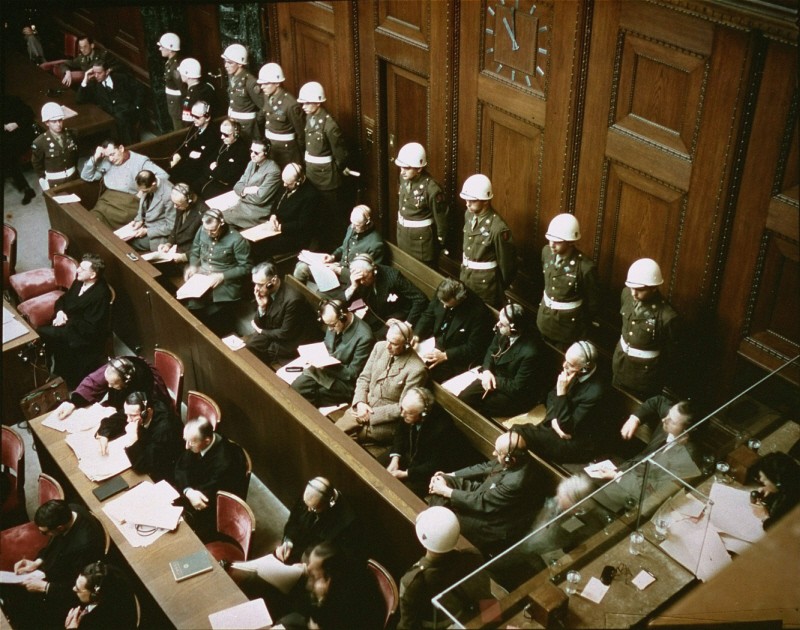
Franz von Papen
In the immediate aftermath of the Holocaust, the world was faced with a challenge—how to hold individually accountable those German leaders who were responsible for the commission of monstrous crimes against humanity and international peace. The International Military Tribunal (IMT) held in Nuremberg, Germany, attempted to face this immense challenge. On October 18, 1945, the chief prosecutors of the IMT brought charges against 24 leading German officials, among them Franz von Papen.
Franz von Papen (1879–1969) was former Chancellor of Germany (1932), Ambassador to Austria (1934–1938), and Ambassador to Turkey (1939–1944). As Ambassador to Austria, von Papen paved the way for the Anschluss (the annexation of Austria by Nazi Germany). He attempted but failed to persuade Turkey to join the Axis alliance in World War II.
Von Papen was acquitted of all charges at Nuremberg. In 1949 a German denazification court sentenced him to time in a labor camp; however, von Papen was released immediately following appeals.
Critical Thinking Questions
- What role did von Papen have in the Nazi rise to power?
- The International Military Tribunal at Nuremberg is the best known of postwar trials. Investigate trials conducted by individual countries in the late 1940s.
- Besides military leaders and government officials, which professions were specifically investigated in trials?
- Beyond the verdicts, what impact might war crimes trials have?

